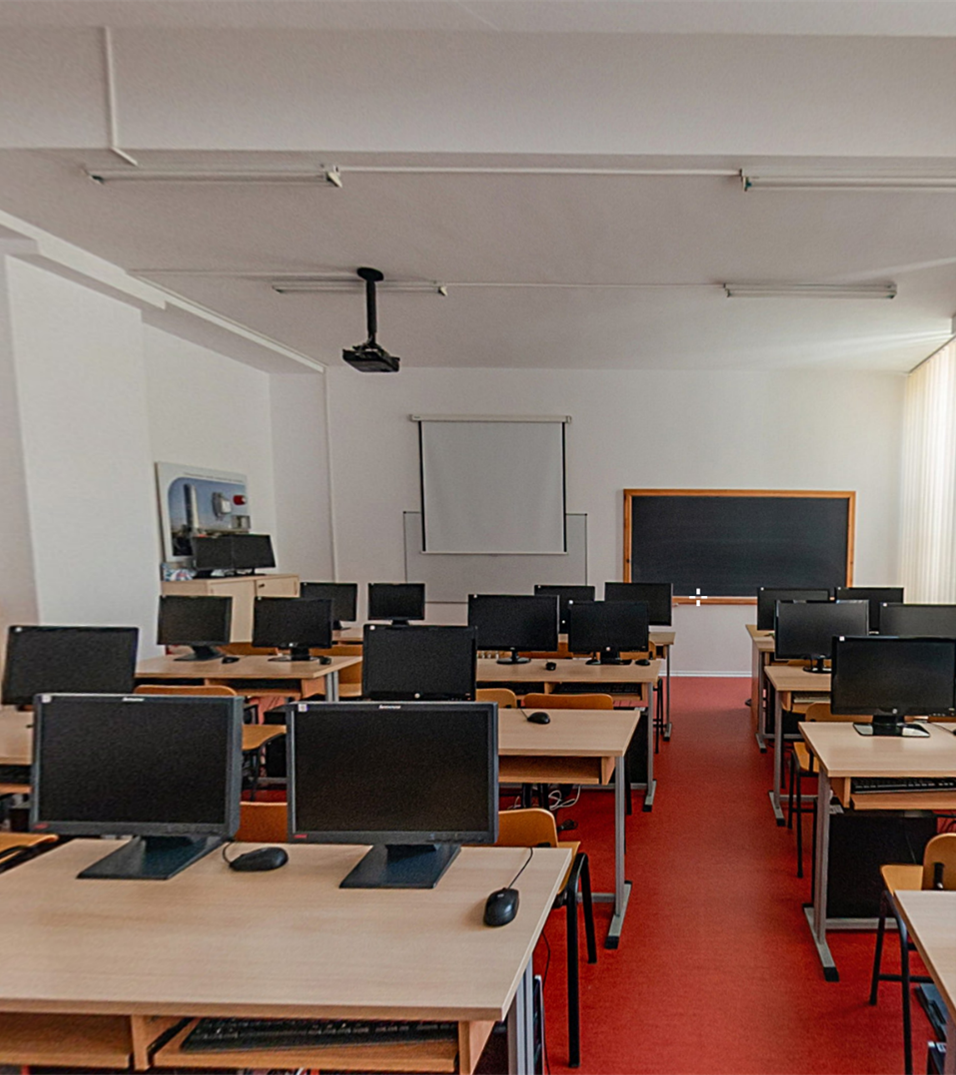Laboratory Microprocessors and Microcontrollers
The main purpose of the microprocessors and microcontrollers laboratory is to form fundamental concepts that underlie the use of microprocessor systems. Thus, the laboratory emphasizes both the development of software programs and the understanding of current architectures based on microprocessors and microcontrollers. The laboratory goal is to acquire the following notions: understanding the architecture of the microprocessor and the instructions set with which it operates, the operation mode, types and functions of memory circuits, the operating principles of digital I/O interfaces, analysis of microprocessor interrupts; understanding the operation and usefulness of a timer, understanding the communication interfaces SCI, RS232, SPI, I2C. In addition, in the microprocessors and microcontrollers laboratory, besides the understanding how the hardware architecture works, another objective is to understand the logical part of a computing architecture. In this sense, the students will study through a series of laboratories that deal with combinational logic and finite state automata.
The laboratory also hosts the applications part of the course on “Applied Informatics”, aims to present the evolution of computing systems, the architecture of a computing system, the basics of Boolean arithmetic, as well as the logical basics of computing systems. In addition, laboratory activities focus on the development of software applications. In this regard, the students will use the python programming language. For better training, the Python programming language is employed. An important objective of the applied informatics laboratory is the anchoring of theoretical notions through practical activities. For this purpose, 15 assemblies composed of an SBC (Raspberry pi) and an analogue sensor kit are used. During the semester, students can test the software applications through assemblies made in the laboratories.

room EH 002
Virtual tour